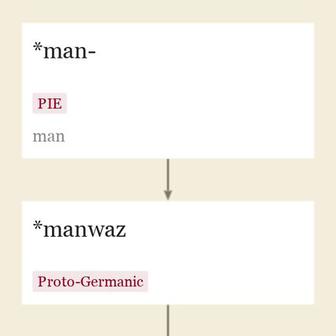underclassman n.
"
Entries linking to underclassman
Old English under (prep.) "
Productive as a prefix in Old English, as in German and Scandinavian (often forming words modeled on Latin ones in sub-). Notion of "
Under the weather "
c. 1600, "
Meaning "
The fault, the evil, in a society is when privilege exists without responsibility and duty. The evil of the classless society is that it tends to equalize the responsibility, to atomize it into responsibility of the whole population—and therefore everyone becomes equally irresponsible. [T.S. Eliot, BBC interview with Leslie Paul, 1958]

"
Sometimes connected to root *men- (1) "
Specific sense of "
Man also was in Old English as an indefinite pronoun, "
As "
Man-about-town "
So I am as he that seythe, 'Come hyddr John, my man.' [1473]
MANTRAP, a woman's commodity. [Grose, "Dictionary of the Vulgar Tongue," London, 1785]
At the kinges court, my brother, Ech man for himself. [Chaucer, "Knight's Tale," c. 1386]
updated on February 04, 2013